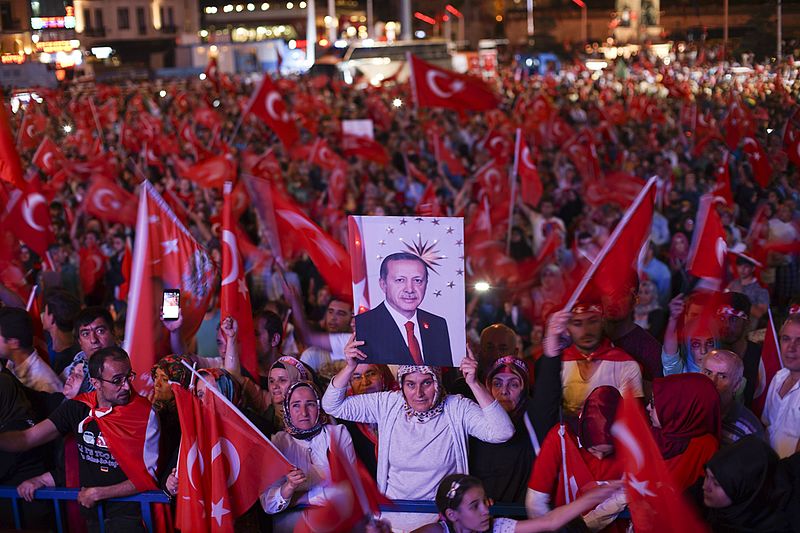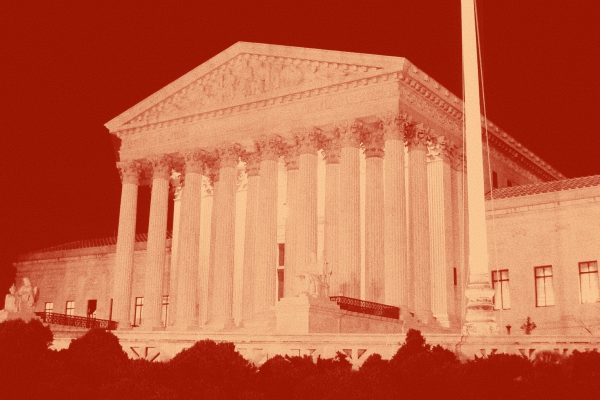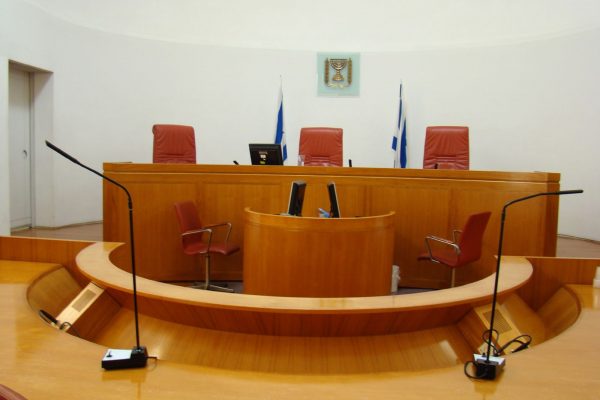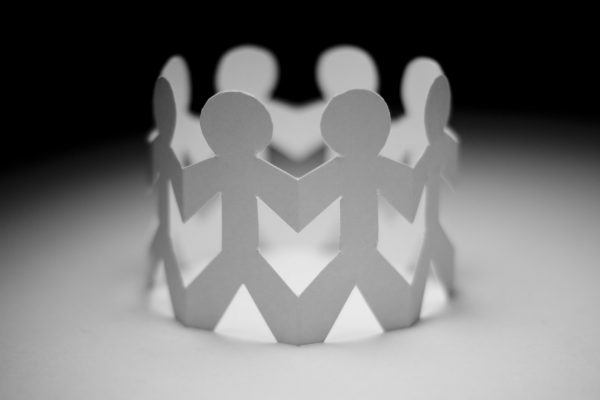Shortly after midnight on July 16, a crowd of thousands, waving Turkish flags and holding up portraits of President Recep Tayyip Erdoğan, watched as a boy from among them was hoisted onto a stage installed before the Istanbul Metropolitan Headquarters.
“What do you want to be a martyr for?” the host asked the boy, crouching so they could look each other in the eye.
“My people.”
“What else?”
“My nation.”
“What else?”
“God.”
The crowd was gathered to commemorate the one-year anniversary of an attempted coup in Turkey, a nation where the military has stepped in to remove democratically elected governments four times: 1960, 1971, 1980, and 1997. But July 15, 2016, was different, marking the first time a counter-coup had come not from within the military, but from the masses.
July 15, 2016 marked the first time a counter-coup had come not from within the military, but from the masses.
In the intervening year, Erdoğan and his government have gone to great lengths to ensure that no one forgets what happened that night. The “July 15 Saga,” as the government now calls it, is heralded as an epic battle, the start of a new era for Turkey—but to half the country, a half that now despises Erdoğan, it was the beginning of one of the darkest years in their republic’s history.
Legal charges have been brought against 169,013 people for having a purported role in the coup attempt; 50,510 remain under arrest, among them 13 opposition lawmakers, 150 journalists, 169 generals, 8,815 police officers, 24 governors, and 2,413 judges and prosecutors. More than 165,000 public sector workers have been subjected to a kind of civil death: their passports cancelled, they are officially barred from ever holding government jobs, the allegation of being terrorists likely forever stigmatizing them from any private sector employment.
• • •
On the night of the 2016 attempted coup, rebel soldiers pulled up to the municipal headquarters in jeeps, flanked by several tanks and armored cars, with the aim of taking over the building. Across the country, soldiers were deployed by a faction of rebel officers and ordered to block bridges and highways, lock down airports, and storm television studios—all the standard steps usually involved in a coup d’état. Except that this one would not go as planned.
Seventeen of the 250 people killed by the rebels that night died trying to rescue the municipal headquarters. Seeing all the signs of a coup in the making, so familiar from past decades, civilians took to the streets to join police officers confronting the soldiers.
Rebel F-16s bombed the Parliament in Ankara as lawmakers held an emergency session (fragments from the rubble were later gifted to foreign correspondents in Turkey). Helicopter gunships fired not only on police and intelligence installations, but also into crowds of civilians attempting to talk soldiers into abandoning their posts. But ten hours after the attempted coup began, Hulusi Akar, the Turkish Armed Forces Chief of Staff, was freed from rebels holding him hostage, and across the country soldiers were disarmed and led away in handcuffs.
When it came time to explain who was behind the coup, Erdoğan, at a hastily arranged press conference at Ataturk Airport, pointed to a familiar foe: Fethullah Gülen, a cleric and former ally of the President living in self-imposed exile in the United States. The two men had fallen out since 2013, and Erdoğan had Gülen’s followers—hundreds of thousands of devout Muslims like Erdoğan—declared terrorists.
One month after decrying Obama's refusal to close Guantánamo, Erdoğan promised to punish the rebels “just like in Guantánamo.”
At the memorial rally in Istanbul, hundreds lined up to grab a free cup of tea from dozens of tents sponsored by an array of Turkish corporations. The host, in between recitations of verses from the Quran, pointed out the importance of the counter-coup. July 16, he erroneously told the crowd, was the same date the Prophet Muhammad came to Medina, marking the first year of the Islamic calendar (July 16, 622 AD, is the first day of the Islamic calendar, but not the day Muhammad arrived in Medina).
Turkish telecommunications authorities set up a surprise for cellular phone users that night: instead of the standard ringing tone, when placing a call one heard a prayer for the counter-coup martyrs read by Erdoğan. Earlier that night, Erdoğan appeared at a memorial rally on Istanbul’s Bosphorus Bridge—renamed the July 15 Martyrs’ Bridge after the forty-two people killed there. “Do you know what God has promised the martyrs?” he said. “For those who fight in the way of God, or in the way of their nation, he has promised them paradise.” He then went on to make a promise of his own: “first, we will rip off the heads” of those who perpetrated the coup. Those standing trial would appear in court wearing matching uniforms, he said, “just like in Guantánamo.”
Just a month before the coup attempt, while commenting on outgoing President Barack Obama’s legacy, Erdoğan had lamented Obama’s inability to close Guantanamo. The apparent desire to emulate the conditions at Guantánamo Bay is just one of the many troubling reversals by Erdoğan.
Once an outspoken advocate for a careful definition of what “terrorism” is—criticizing the label being used to describe the actions of the Muslim Brotherhood or Hamas, for instance—Erdoğan now uses the word to describe journalists, lawmakers, activists, seemingly anyone who has a view counter to his own.
The coup gave Erdoğan the legal tools to prosecute these critics: a state of emergency that has been imposed for a year now and will likely continue indefinitely. It allows for months-long detentions without charge, the blanket closure of media outlets and civil society groups, and rule by presidential decree.
Every few weeks, Turks have awoken to a new decree, published online in the Official Gazette, announcing public sector workers to be purged, civil society groups to be shuttered, and media outlets to be banned for membership in or affiliation with “terrorist organizations and structures presenting a threat to national security.”
The effort to track down every last member of the Gülen movement—which the government officially refers to as Fethullahçı Terör Örgütü (the Gülenist Terror Organization, or FETÖ)—has turned into a national obsession, with husbands proudly turning in wives, and parents denouncing their children on national television.
Often the evidence submitted as proof of sedition is ludicrously thin, even farcical. Tens of thousands have been detained as FETÖ members because they downloaded ByLock, a shoddy encrypted messaging app allegedly developed by Gülen’s followers to communicate. Officials have said they have a list of more than 100,000 FETÖ ByLock users and they expect to track down each one.
Others have been indicted because they possessed a U.S. one dollar bill—allegedly blessed and then gifted to them by Gülen as a secret communication to his followers. One can even be a “crypto-FETÖ”—hiding one’s membership in the group by being too supportive of Erdoğan.
To many of Erdoğan’s critics in Turkey, the prosecutions are a selective witch-hunt, one that ignores those with far stronger links to Gülen. Former President Abdullah Gül visited Gülen in Pennsylvania in 2000, and Erdoğan authorized former Prime Minister Ahmet Davutoğlu to do the same in 2013. Indeed Erdoğan himself has far closer ties to Gülen than do many of the cleric’s supposed conspirators: in 1995, Erdoğan heaped praise on Gülen while seated next to him at the wedding of one of Turkey’s most celebrated football players, Hakan Şükür. Şükür is now being tried in absentia for being a FETÖ member.
Punishment has become a farcical national obsession, with husbands proudly turning in wives, and parents denouncing their children on national television.
Erdoğan’s narrative of the coup and the threat from FETÖ has not been limited to his own country’s borders. In November, he was given a warm welcome in Pakistan. At a speech before a joint session of Parliament he took the opportunity to extend what he called a warning to “all our friends,” saying it was necessary to dismantle the “evil network” that was FETÖ, and that “the terrorist organization is a threat to the security and public order of Pakistan.” He then thanked Pakistan for ordering the deportation of around 400 Turkish nationals allegedly linked to Gülen. Turkey has asked for the extradition of at least 118 suspects residing in 41 countries. A host of government departments, including the Turkish Presidency of Religious Affairs, have invited counterparts from other countries to conferences in Istanbul to explain the dangers of FETÖ.
For all its international bravado, Erdoğan’s regime faces a mounting challenge at home. When Turks voted on April 16 in a constitutional referendum to expand presidential powers, the measures passed by only a slight margin. Despite being conducted under a state of emergency, with police arresting hundreds of activists trying to campaign against Erdoğan, the referendum showed that at least 49 percent of the country’s voters did not welcome the idea of handing Erdoğan more power. Members of Erdoğan’s own party voted against his constitutional proposal, and prominent Islamist parties, such as the small but influential Saadet Party, also campaigned against it.
Last month Kemal Kılıçdaroğlu, the head of the secular Republican People’s Party, the largest opposition party in Turkey, led a 280-mile march from Ankara to Istanbul, timed to arrive in Istanbul just two days before the anniversary of the July 15 coup attempt. Along the route he met with dissident Islamists and members of the third largest opposition party, the pro-Kurdish Peoples’ Democratic Party, which faces political eradication over terrorism charges.
On the anniversary of the coup attempt, Kılıçdaroğlu and his party largely boycotted the grand memorial rallies organized by the government. Kılıçdaroğlu, whom Erdoğan once thanked for helping present a unified political front against the attempted coup, now refers to a “civilian coup,” which he says was perpetrated on July 20, when the state of emergency was first imposed in Turkey.
On July 15, 2017, Kılıçdaroğlu wrote in an op-ed that the failed coup “could have been the start of a new and democratic era in Turkey. Instead, in the year since, Turkish democracy has given way to a near-dictatorial regime.”








